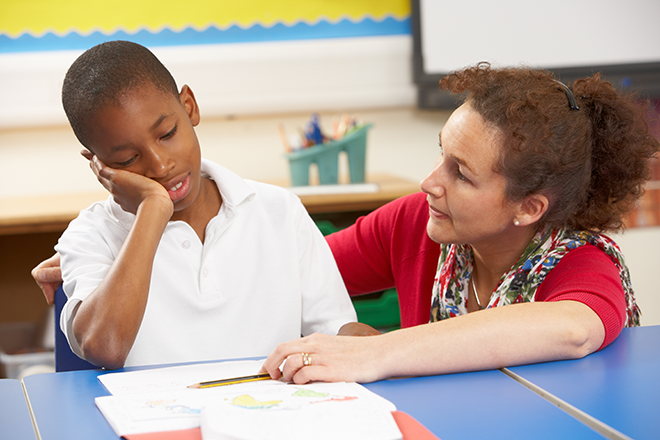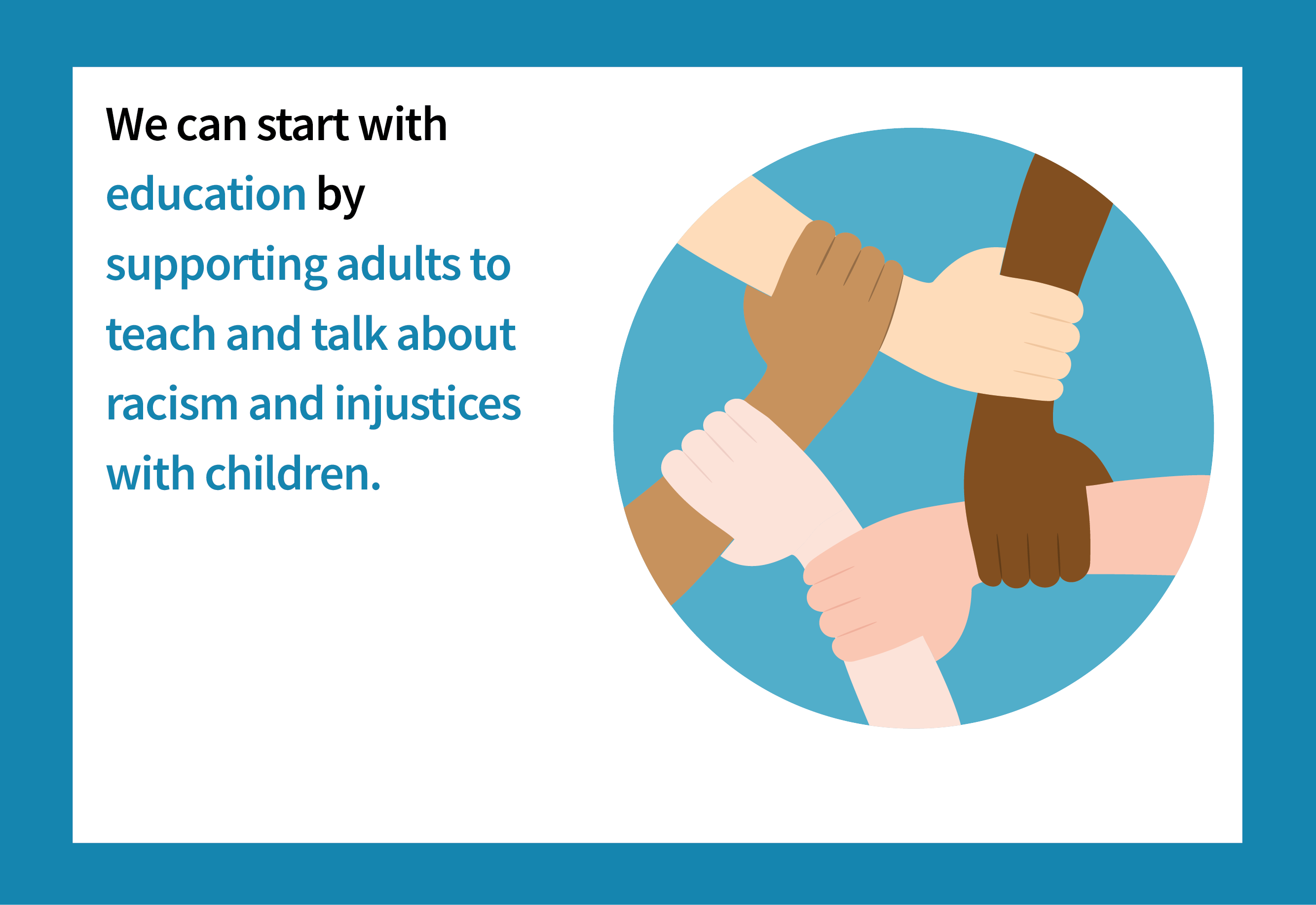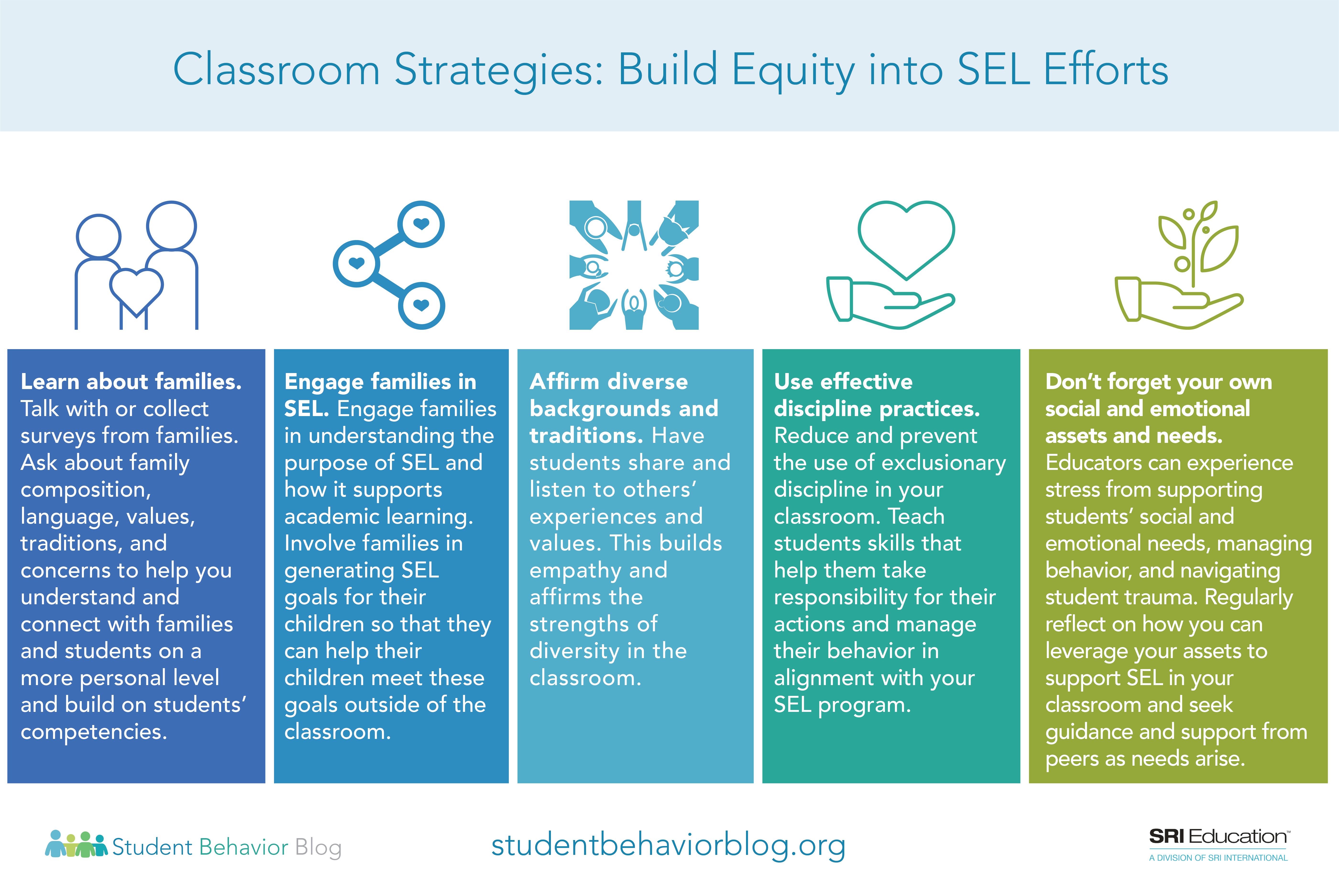We know that research informs practice in education, but how does practice inform research? Dr. Michelle Woodbridge, one of our lead researchers, recently attended a webinar on supporting students impacted by racial stress and trauma. In our latest blog post, she shares her response to that learning experience (spoiler alert – it was intense!) and her commitment to practice being a better researcher.
The American Psychological Association’s Facing the Divide video series brings psychological science to the conversation regarding the connections among race, racism and health. As experts on human behavior, psychologists have a unique perspective that can inform critical analysis of race relations. The site offers a variety of videos, discussion guides, fact sheets and other information … Continue reading Facing the Divide
Our Student Behavior Blog team at SRI Education is deeply heartbroken and outraged by the racism, brutality, and hatred that plague Black children, families, and individuals, not only with regard to recent events, but with recognition that these are pervasive issues they face in every moment of their lives. Consistent with our mission statement, we continue to strive to think about how we can conduct research, use data, and develop tools in meaningful ways that will reduce barriers and promote equity for students across our nation who continue to experience these longstanding injustices.
Social-emotional learning (SEL) programs are more likely to be successful with all students when they are grounded in strategies that promote equity. Equity means ‘leveling the playing field’ and creating a culture where all students feel fully included, respected, represented, and valued. Here are a few strategies that start in the classroom. Content excerpted from … Continue reading Strategies for bringing an equity lens to SEL
We expect teachers to handle a lot: create engaging learning experiences, differentiate instruction based on student needs, manage behavior, motivate students to learn, and tackle persistent gaps and inequities. More and more, teachers are meeting this challenge by embracing social-emotional learning (SEL), which can support academic learning, teach and reinforce positive behavior, motivate students to … Continue reading Want to build an equitable classroom? Start with social-emotional learning (SEL)








